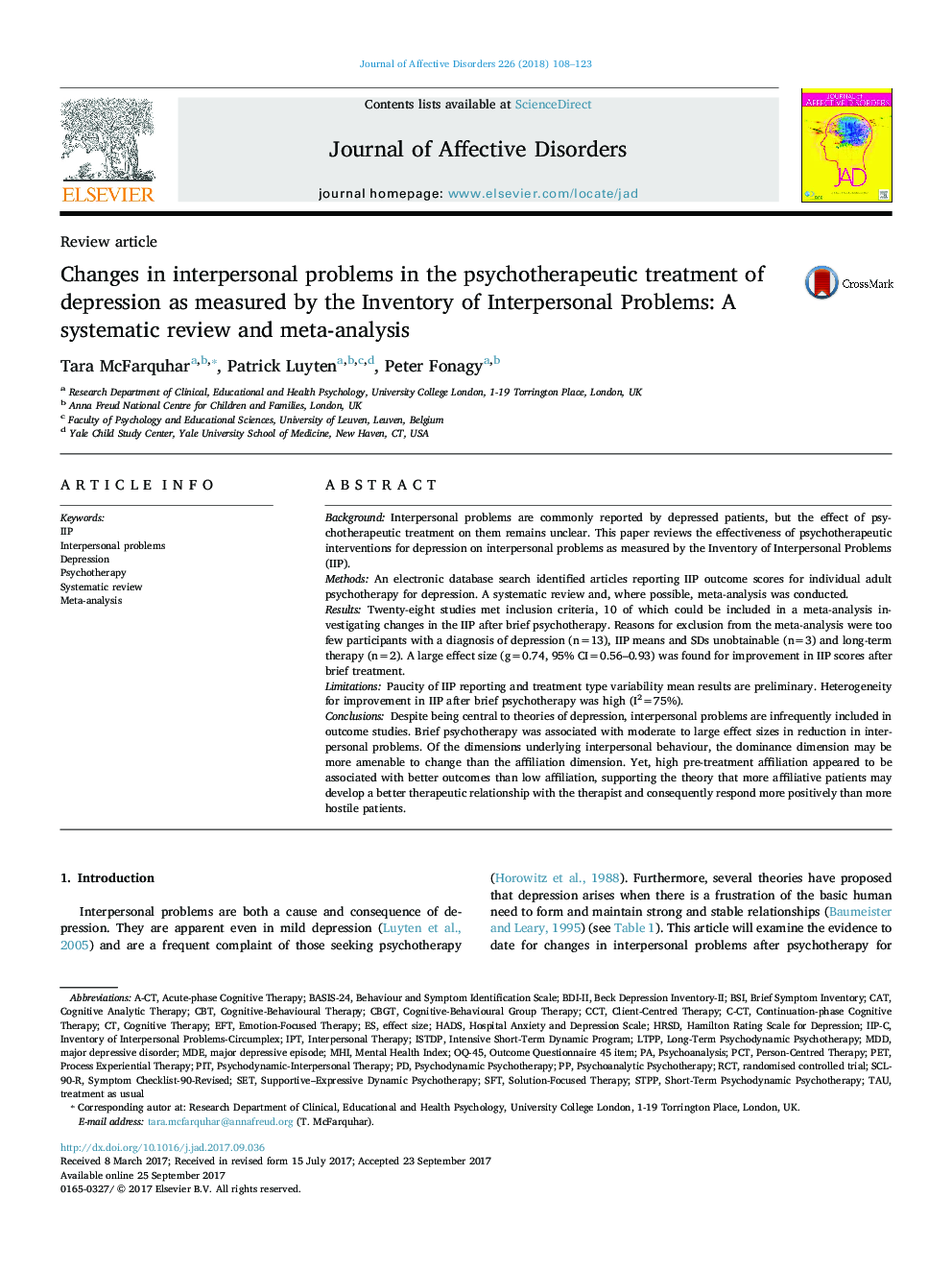| Article ID | Journal | Published Year | Pages | File Type |
|---|---|---|---|---|
| 5721643 | Journal of Affective Disorders | 2018 | 16 Pages |
â¢IIP total scores improved considerably following psychotherapy for depression.â¢For brief psychotherapy, the effect size of IIP score reduction was large, g=0.74.â¢A small but notable improvement in IIP total beyond treatment end was indicated.â¢IIP subscales scores generally improved after psychotherapy.â¢The lack of reporting of interpersonal problems in depression trials is notable.
BackgroundInterpersonal problems are commonly reported by depressed patients, but the effect of psychotherapeutic treatment on them remains unclear. This paper reviews the effectiveness of psychotherapeutic interventions for depression on interpersonal problems as measured by the Inventory of Interpersonal Problems (IIP).MethodsAn electronic database search identified articles reporting IIP outcome scores for individual adult psychotherapy for depression. A systematic review and, where possible, meta-analysis was conducted.ResultsTwenty-eight studies met inclusion criteria, 10 of which could be included in a meta-analysis investigating changes in the IIP after brief psychotherapy. Reasons for exclusion from the meta-analysis were too few participants with a diagnosis of depression (n=13), IIP means and SDs unobtainable (n=3) and long-term therapy (n=2). A large effect size (g=0.74, 95% CI=0.56-0.93) was found for improvement in IIP scores after brief treatment.LimitationsPaucity of IIP reporting and treatment type variability mean results are preliminary. Heterogeneity for improvement in IIP after brief psychotherapy was high (I2=75%).ConclusionsDespite being central to theories of depression, interpersonal problems are infrequently included in outcome studies. Brief psychotherapy was associated with moderate to large effect sizes in reduction in interpersonal problems. Of the dimensions underlying interpersonal behaviour, the dominance dimension may be more amenable to change than the affiliation dimension. Yet, high pre-treatment affiliation appeared to be associated with better outcomes than low affiliation, supporting the theory that more affiliative patients may develop a better therapeutic relationship with the therapist and consequently respond more positively than more hostile patients.
